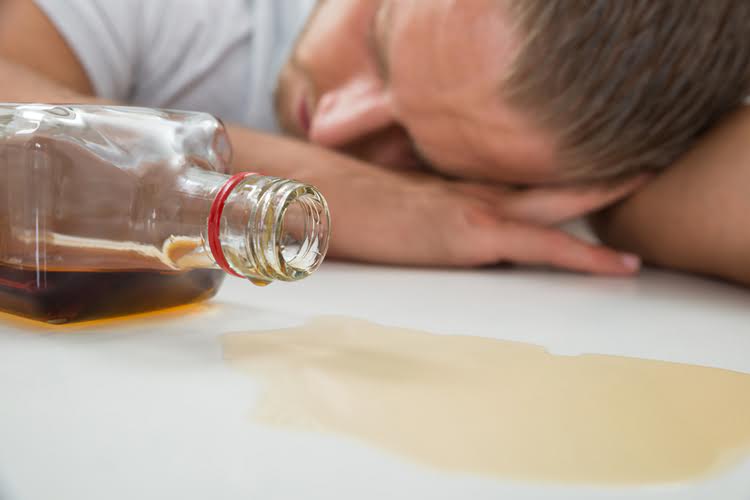At the same time, some studies suggest that stopping or reducing alcohol intake produces better outcomes for those with high blood pressure or CVD. Alcohol withdrawal reverses the adverse impact of alcohol on endothelial function, with rapid normalization of the BP. Above 14 drinks http://adamovka.ru/saint/?id=1515 a week, heart failure risk is higher, with hypertensive patients who drink more being more likely to show subclinical features of heart damage affecting the heart’s diastolic function. This is a dose-dependent association, as is that with left ventricular hypertrophy.

Howes 1985 published data only
- The organization suggests the results of studies that report the heart benefits of red wine may instead have a basis in lifestyle factors other than alcohol.
- Your gut microbiome is a hotbed of bacteria that help keep your digestive system happy and healthy.
- Another showed that moderate alcohol intake might reduce cognitive decline in people with Alzheimer’s Disease.
- While low amounts may support brain health, in excess, studies show alcohol can disrupt how memories form.
This article does not contain any studies with human or animal subjects performed by any of the authors. She has over a decade of direct patient care experience working as a registered nurse specializing in neurotrauma, stroke, and the emergency room. Healthcare professionals may recommend people with hypertension decrease the amount of alcohol they consume. Some researchers are involved in organizations with ties to the alcohol industry.
Apostolidou 2015 published data only
Eating less processed food will help you eat less salt, less sugar, and fewer refined carbohydrates. One unit of alcohol is around 8g, which is 56kcal or the equivalent calories of one custard cream. Your drink or mixer may also have added sugars, increasing the https://www.lite-editions.com/what-you-should-know-about-this-year-7/ number of calories it contains. For a lot of people on long-term medications, alcohol can make the drug less effective. Sign up to our fortnightly Heart Matters newsletter to receive healthy recipes, new activity ideas, and expert tips for managing your health.
- However, ascertaining the exact alcohol consumption threshold for determining both the benefit and risk has been challenging, and threshold levels continue to differ across studies.
- Plasma renin activity was reported to be increased in Kawano 2000 as a late effect of alcohol consumption.
- Whiskey has high levels of polyphenols, plant-based antioxidants linked with lowering your risk of heart disease.
Buckman 2015 published data only

Your gut microbiome is a hotbed of bacteria that help keep your digestive system happy and healthy. The trillions of microbes in your colon and large and small intestines are critical to proper digestion. That’s because your body already has processes in place that allow it to store excess proteins, carbohydrates and fats. So, your system prioritizes getting rid of alcohol before it can turn its attention to its other work. With continued alcohol use, steatotic liver disease can lead to liver fibrosis.

Blood calcium levels

Systolic blood pressure is the pressure in a person’s arteries when their heart beats. According to the published protocol, we intended to include only double‐blind RCTs in this review. Because higher doses of alcohol exert specific pharmacological effects on drinkers, we had a few double‐blind RCTs after the first screening. Considering the difficulty of masking in these types of studies, we decided to also include single‐blind and open‐label studies in the review. We took several steps to minimise the risk of selection bias to identify eligible studies for inclusion in the review. We also checked the lists of references in the included studies and articles that cited the included studies in Google Scholar to identify relevant articles.
References to studies included in this review
Many researchers have found that alcohol intake increases HDL cholesterol (HDL-c) levels, HDL (“good cholesterol”) particle concentration, apolipoprotein A-I, and HDL-c subfractions (Gardner et al. 2000; Muth et al. 2010; Vu et al. 2016). High triglyceride levels in the blood stream have been linked to atherosclerosis and, by extension, increased risk http://rblogger.ru/2014/12/04/jane-air-chernaya-gavan/ of CHD and stroke. However, in a recently conducted Mendelian randomization study, Vu and colleagues (2016) reported that low-to-moderate alcohol consumption reduced triglyceride and LDL-c and increased HDL-c, in particular the HDL2-c subfraction. Interestingly, the researchers found a nonlinear effect of alcohol consumption on HDL2-c levels.
If it was appropriate to combine cross‐over trials with other trials, we used the recommended generic inverse variance approach of meta‐analysis. We tested the effect of cross‐over trials through sensitivity analysis by excluding them from the meta‐analysis to check if the effect estimate changed significantly. All randomised controlled trials (RCTs) that compared alcohol to placebo or similar tasting non‐alcoholic beverages were included in this systematic review. Alcohol can affect drinkers differently based on their age, sex, ethnicity, family history, and liver condition (Cederbaum 2012; Chen 1999; Gentry 2000; Thomasson 1995).
